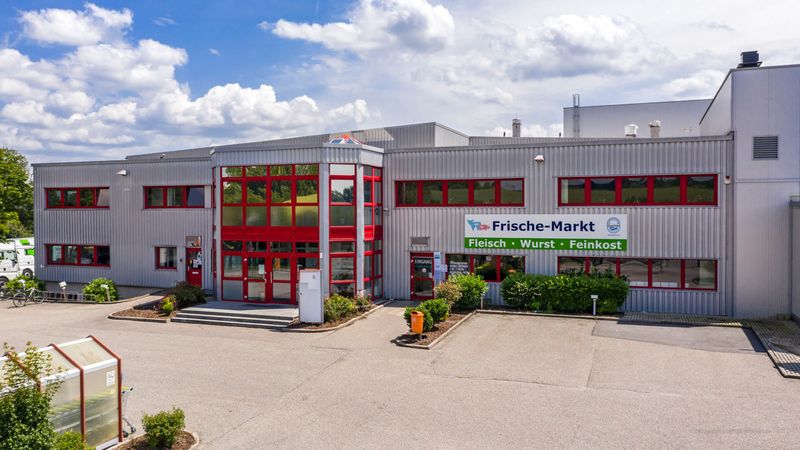
Published in News
Market Pulse: A Global Crisis of Capacity and Consolidation
An analysis of the global forces—from corporate consolidation to regulatory pressure—shuttering meat processors and threatening farm-to-table supply chains.

The recent emergency vote to close the Landshut slaughterhouse in Bavaria is not an isolated event. It is a powerful symptom of a much wider, global trend pressuring meat processors. From corporate consolidation in the United States to a regulatory crisis in the United Kingdom, the core issue is the same: the infrastructure for meat processing is fracturing, leaving producers with fewer options and threatening regional supply chains.
While the German crisis is driven by a "perfect storm" of falling domestic demand, export blockages (due to African Swine Fever), and resulting overcapacity, different regions are facing their own unique versions of this disruption.
Global Analysis: Three Crises, One Outcome
The pressure on slaughterhouses worldwide can be broken down into three distinct narratives:
1. The "Large-Scale" Crisis: Corporate Consolidation (USA & Germany)
In major markets, large-scale processing is becoming a game of last-man-standing.
United States: The U.S. is witnessing a wave of closures driven by corporate "optimization." Tyson Foods, a dominant player, has been systematically shutting down plants.
It closed a major pork plant in Perry, Iowa, in 2024.
It is slated to close its large beef facility in Emporia, Kansas, by early 2025.
This consolidation is happening as the U.S. cattle herd shrinks to its lowest level in decades, creating a glut of processing capacity and financial losses for packers.
Germany: The Landshut situation follows the 2024 closures of major Vion plants in Perleberg and Emstek. This is a direct response to overcapacity created by a 20% drop in domestic pork consumption over the last five years and the loss of key export markets.
In both cases, a small number of massive corporations are consolidating operations, leaving entire regions and their producers with no local processing options.
2. The "Small-Scale" Crisis: Death by Regulation (United Kingdom)
The UK is facing the opposite problem: its network of small, local abattoirs is collapsing.
A recent survey found that the UK's network has collapsed from ~2,500 to just 203 abattoirs, with many more at risk.
The drivers are not falling demand, but "one-size-fits-all" regulations that are disproportionately expensive for small operators.
An ageing workforce with no succession plans and the vulnerability of the supply chain (e.g., to CO2 shortages for stunning) are accelerating the decline.
This threatens the entire "farm-to-table" local food economy, rare breed preservation, and animal welfare, as livestock must be transported much longer distances.
3. The "Forced Evolution" Crisis: Consolidation by Disease (Asia)
In Asia, the trend is not closure but rapid, forced consolidation, moving from millions of small farms to a few industrial giants.
Vietnam: The market is not shrinking—it is one of the world's top pork consumers. However, African Swine Fever (ASF) and strict new environmental and biosecurity laws have forced an estimated 90% of small-scale pig farms out of the market over the last five years.
These smallholders are being replaced by vertically integrated mega-corporations like C.P. Vietnam and Masan MEATLife, which are building their own industrial-scale slaughterhouses.
China: A similar story is unfolding. After ASF decimated its herd, the industry rebuilt with a focus on "mega-farms." Now facing a supply glut, the government is calling on these large producers to cut output, creating internal market pressure that squeezes out any remaining small players.
Sources
On German/EU Consolidation: Euromeatnews (January 2024). "Vion reviews German business portfolio.
On U.S. Corporate Consolidation: DTN Progressive Farmer (December 2024). "Tyson Foods to Close Kansas Meatpacking Plant; 809 Employees to Lose Jobs."
On the UK Small Abattoir Crisis: Farmers Guardian (October 2025). "Small abattoirs are critical to farming businesses, survey finds, FarmingUK (October 2025). "From 2,500 to 203: Decline of UK abattoirs sparks fresh alarm."
On Vietnam's "Forced Evolution": Vietnam News (June 2025). "Industrial giants take lead in Việt Nam's pork market, VietNamNet (October 2025). "Farmers in distress as pigs culled, big livestock firms report huge profits"
